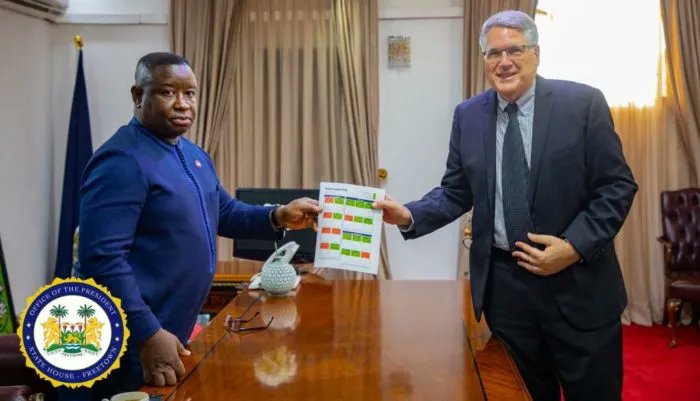When we posted a Twitter thread on the MCC Scorecard, we indicated that we would be coming back to the topic from a critical perspective. We wanted to separate the facts from the editorialisation. The immediate reaction was that the scorecard is a good thing—it commits the government to make critical reforms to be able to qualify for the grants the MCC programme offers. Fair enough, but there are two points that we want to pick on. First, the symbolism and optics of the MCC’s scoring system and the performance of handing out report cards to developing countries. The second point is our leaders’ perpetual fixation with aid and loans as validation and embarrassment of using them for political point-scoring.
Countries like the US that give aid keep modifying international assistance modalities to make it more effective and result oriented. Obviously, everyone wants value for money. However, to have a programme that lines up poor countries and issues them an annual report card that determines whether or not they will get aid from a rich, powerful country carries an ugly symbolism and undermines the very spirit of assistance. To have President Julius Maada Bio receive his report card in front of the cameras is a performance that displays unequal partnership (which is actually what it is) and no regard for the dignity of the people they are assisting, undermining the goodwill of the US. This is not how assistance is done in African tradition and you wonder how the MCC and State House communication people did not see anything wrong with the optics.
In any case, the US would do what they want to do, and they have the right to determine the model they want to use in its international assistance programmes. A big part of the problem is endogenous and relates to our leaders’ mentality. And that takes us to the next point.
Every time the MCC scorecards come out or Sierra Leone manages to qualify for some World Bank grant and IMF loan, you would see people in government rolling head over heels. They do not only celebrate the assistance, but they also try so hard to make it a point of validation. “We are doing very well”, they would say. The debate is always about political point scoring and politicians with their supporters across the divide argue animatedly about who pleases the donors more and who gets more grants and loans than the other. Now, this is how small-mindedness and lack of dignity manifest.
it is OK to be grateful for the good things that come our way. It is proper to appreciate the assistance. But when this becomes the norm that entraps our national psyche in the cage of dependency, we begin to exhibit the sort of undignifying tendencies and simple-mindedness that comes up every time we receive aid and loans. As a people, we are supposed to be more sophisticated than this. Programmes like the MCC, as helpful as they may be in addressing our development needs, should also force us to reflect. Do we want to continue like this?
When the European Union pays for public infrastructures like roads, Sierra Leonean politicians and their supporters do not only celebrate the development; they try to take credit for something that other taxpayers paid for, while our leaders live a life of luxury with domestic revenues. And then we expect donors to pay for the improvement of basic services like water, electricity, health and education. This triggers us to invoke the analogy of the parents who enjoy fine dining while they look up to their neighbours to feed their children.
There are countries that receive aid. There are many countries participating in the MCC programme. But Sierra Leone seems to be the one that uses such programmes and even loans to give citizens a false sense of growth and progress with the aim of making a point. There is something fundamentally wrong with this mindset.
We have to appreciate that governance is not simple, and development is a complex multidimensional process that requires leaders to make difficult decisions and compromises. Granted! It is for these same reasons that you need leaders and politicians that are sophisticated and dignified in their pragmatism and pragmatic in their dignity. Appreciate the help, but do not glorify and commodify your poverty to the point that you are getting stuck in dependency and becoming the forever poster child of aid. The people who help you respect you when they see the efforts you are making to become less and less dependent on aid to solve very foundational problems. The monies that our governments spend on the things that really do not matter to ordinary people can go a long way in addressing water shortage and the electricity deficit that international assistance programmes contribute to solving.
Whatever you are up to, have a nice weekend.
About The Author
- Engage Salonehttps://www.engagesalone.org/author/eng21_admin/
- Engage Salonehttps://www.engagesalone.org/author/eng21_admin/
- Engage Salonehttps://www.engagesalone.org/author/eng21_admin/
- Engage Salonehttps://www.engagesalone.org/author/eng21_admin/


